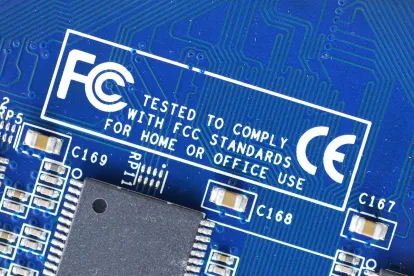TCPAWorld continues to bolt ahead with developments.
In the latest news, the FCC has issued a new notice of proposed rulemaking (NPRM) seeking to clarify and expand consumers’ right to opt out of robocalls.
There are several pieces to the NPRM of note.
First, the Commission proposes to codify the rule that consumers may revoke TCPA consent through any reasonable means. This has been the de facto rule since the TCPA Omnibus ruling in 2015 but–as the Commission points out in the new NPRM–that rule was never actually etched into the CFR as a binding rule.
Under the new (old) proposed rule consumers could opt out using words such as “stop,” “revoke,” “end,” or “opt out,” and that callers “may not infringe on that right by designating an exclusive means to revoke consent that precludes the use of any other reasonable method.”
Previously the Courts have confirmed that a contract term designating a revocation mechanism was not a “unilateral” opt out–and some courts find contractual consent cannot be revoked— so it remains to be seen whether the new proposed rule would alter the case law on this point.
The Commission does want to provide some guidance on what is unreasonable as well. The case law is peppered with instances of people revoking consent by sending letters via fax to some obscure number and then suing when calls continue. The FCC wants to hear about these instances: What are the most common situations in which callers are unable to process opt-out requests from consumers? Are there ways that the Commission could address these situations in this proceeding consistent with our goal not to place an unreasonable burden on consumers to opt out of robocalls? We propose to codify that callers that do not believe that consumers have used a reasonable method to convey a request to revoke consent will be afforded an opportunity to rebut the presumption on a case-by-case basis, should a complaint be filed with the Commission or finder of fact. We seek comment on the types of evidence that would suffice to rebut the presumption. For example, if the consumer directs the request to a telephone number or email address, and the caller presents evidence that the consumer lacks a reasonable basis to expect that the request will be received by it, should we hold that such a method to revoke consent is not in fact reasonable? We believe such a rule would balance the consumer’s right to revoke consent in an easy and reasonable manner with the caller’s ability to process such revocation requests. We seek comment on this proposal, including any impact on small entities.
Interesting stuff.
Perhaps the biggest new proposed change, however, is the revocation timetable. Currently, the CFR gives callers up to 30 days to honor an opt-out. Many states are in accord–the new Florida amendment gives texters 15 days. But the FCC wants to cut that timeframe down to just 24 hours:
We seek comment on this proposal, including on the 24-hour period. Is this period reasonable? Should we, rather, require that revocations be honored immediately upon receipt or consider some other timeframe?
Seems tough to impose a limit here–many different circumstances exist. Not always possible to stop calls so quickly. The current rule of “reasonableness” has been working fine. Not sure why the FCC is moving to change this. But comments are wanted!
Next, we see a VERY useful proposed change brought on by my buddy the Kingmaker over at Capital One.
Specifically, Capital One file a petition way back when asking the FCC to allow companies to send a one time confirmation message to consumers asking them to clarify which types of texts or calls they would like to “STOP”. The FCC proposes making this dream a reality:
We also propose to codify that senders can include a request for clarification in the onetime confirmation text, provided the sender ceases all further robocalls and robotexts absent an affirmative response from the consumer that they wish to receive further communications from the sender. We further propose that a lack of any response to the confirmation call or text must be treated by the sender as a revocation of consent for all robocalls and robotexts from the sender. We do so in response to Capital One’s petition seeking confirmation that the text sender may request clarification in its one-time confirmation message of the scope of the recipient’s revocation request when that recipient has consented to receiving multiple categories of informational messages from the sender.
Lots of wiggle room here for callers. I like it. But notice that all calls must stop until the consumer responds!
Will provide more analysis here over the next few days.
You can read the entire NPRM here: FCC Revocation NPRM




 />i
/>i

